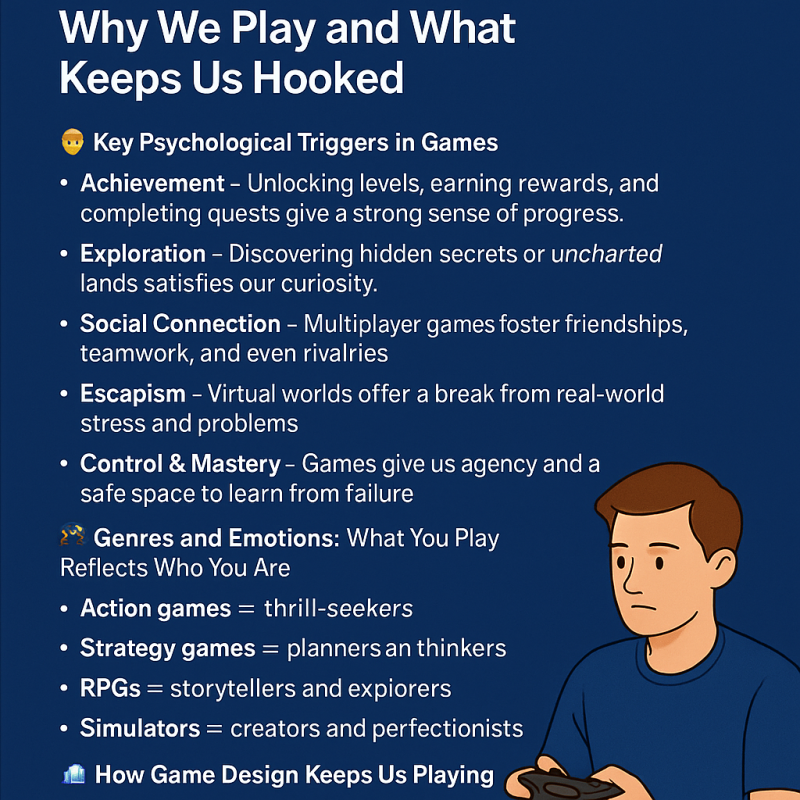Gaming isn’t just about graphics or competition—it’s a deeply psychological experience. Whether you’re raiding dungeons in World of Warcraft or building empires in Civilization, games tap into our core motivations and emotions. But what exactly makes us love gaming so much?
🧠 Key Psychological Triggers in Games
- Achievement – Unlocking levels, earning rewards, and completing quests give a strong sense of progress.
- Exploration – Discovering hidden secrets or uncharted lands satisfies our curiosity.
- Social Connection – Multiplayer games foster friendships, teamwork, and even rivalries.
- Escapism – Virtual worlds offer a break from real-world stress and problems.
- Control & Mastery – Games give us agency and a safe space to learn from failure.
🎮 Genres and Emotions: What You Play Reflects Who You Are
- Action games = thrill-seekers
- Strategy games = planners and thinkers
- RPGs = storytellers and explorers
- Simulators = creators and perfectionists
📈 How Game Design Keeps Us Playing
Game developers use psychological techniques like:
- Variable rewards (like loot boxes or randomized drops)
- Progress bars and XP systems
- Daily login bonuses and limited-time events
These systems create feedback loops that keep players engaged—and sometimes addicted.
🧘♂️ Healthy Gaming: Striking the Balance
While gaming offers joy and stress relief, moderation is essential. Setting boundaries, taking breaks, and staying mindful of screen time help maintain a healthy gaming lifestyle.





